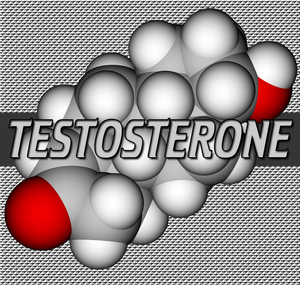Introduction
Low testosterone levels, or hypogonadism, can significantly affect the quality of life for American men, leading to symptoms such as decreased libido, fatigue, and mood disturbances. Testosterone replacement therapy (TRT) is a common treatment approach, with testosterone enanthate being one of the most widely used formulations. This article delves into a prospective study that assesses the safety and efficacy of testosterone enanthate in treating low testosterone levels among American males, providing valuable insights into its potential benefits and risks.
Study Design and Methodology
The study involved a cohort of 200 American men diagnosed with hypogonadism, aged between 30 and 65 years. Participants were administered testosterone enanthate intramuscularly every two weeks, with dosages adjusted based on individual responses and serum testosterone levels. The primary endpoints were changes in total testosterone levels, symptom improvement, and the incidence of adverse events over a 12-month period.
Efficacy of Testosterone Enanthate
The results demonstrated a significant increase in serum testosterone levels among the participants. After three months of treatment, the average testosterone level rose from 250 ng/dL to 600 ng/dL, which is within the normal range for adult males. This improvement was sustained throughout the study duration. Additionally, participants reported notable enhancements in energy levels, libido, and overall mood, as assessed through standardized questionnaires. These findings underscore the efficacy of testosterone enanthate in restoring testosterone levels and alleviating associated symptoms.
Safety Profile and Adverse Events
While testosterone enanthate proved effective, the study also meticulously monitored for adverse events. Common side effects included injection site reactions, such as pain and erythema, which were generally mild and transient. More concerning, albeit less frequent, were reports of increased hematocrit levels, which could predispose individuals to cardiovascular events. However, these occurrences were managed through dosage adjustments and regular monitoring. No severe adverse events, such as myocardial infarction or stroke, were reported during the study period, suggesting a favorable safety profile when used under medical supervision.
Impact on Cardiovascular Health
A critical aspect of the study was the evaluation of testosterone enanthate's impact on cardiovascular health. While some previous studies have raised concerns about the potential for testosterone therapy to increase cardiovascular risks, this prospective study found no significant increase in cardiovascular events among the participants. This finding aligns with recent guidelines that suggest TRT can be safely used in men with low testosterone levels, provided they are closely monitored for cardiovascular risk factors.
Quality of Life Improvements
Beyond biochemical and clinical outcomes, the study also highlighted significant improvements in the participants' quality of life. Men reported enhanced physical strength, better sexual function, and improved mental well-being, which collectively contributed to a higher overall satisfaction with life. These subjective improvements are crucial, as they reflect the real-world impact of testosterone enanthate on the daily lives of American men struggling with hypogonadism.
Conclusion
The prospective study on the use of testosterone enanthate in American men with low testosterone levels provides compelling evidence of its efficacy and safety. The treatment led to significant improvements in testosterone levels and symptom relief, with a manageable side effect profile. Importantly, the study did not find an increased risk of cardiovascular events, reinforcing the role of testosterone enanthate as a viable option for TRT. As with any medical intervention, ongoing monitoring and individualized care are essential to maximize benefits and minimize risks. This research offers valuable guidance for healthcare providers and patients alike, paving the way for more informed decision-making in the management of hypogonadism.
Contact Us Today For A Free Consultation

- Testosterone Enanthate: Enhancing Athletic Performance and Associated Risks in the US [Last Updated On: February 18th, 2025] [Originally Added On: February 18th, 2025]
- Long-Term Health Risks of Testosterone Enanthate Use in American Men [Last Updated On: March 17th, 2025] [Originally Added On: March 17th, 2025]
- Testosterone Enanthate: Benefits, Risks, and Management for Low Testosterone Treatment [Last Updated On: March 18th, 2025] [Originally Added On: March 18th, 2025]
- Testosterone Enanthate's Impact on Sleep Quality in American Males: A Comprehensive Analysis [Last Updated On: March 19th, 2025] [Originally Added On: March 19th, 2025]
- Testosterone Enanthate: A Promising Treatment for Sexual Dysfunction in American Males [Last Updated On: March 19th, 2025] [Originally Added On: March 19th, 2025]
- Testosterone Enanthate: Dispelling Myths and Understanding Facts for American Men [Last Updated On: March 19th, 2025] [Originally Added On: March 19th, 2025]
- Testosterone Enanthate: Enhancing Muscle, Reducing Fat for Weight Management in American Men [Last Updated On: March 20th, 2025] [Originally Added On: March 20th, 2025]
- Testosterone Enanthate: A Promising Treatment for Depression in American Men [Last Updated On: March 20th, 2025] [Originally Added On: March 20th, 2025]
- Testosterone Enanthate: Enhancing Cognitive Function in Aging American Men [Last Updated On: March 20th, 2025] [Originally Added On: March 20th, 2025]
- Testosterone Enanthate: Benefits, Prostate Risks, and Monitoring for American Men [Last Updated On: March 20th, 2025] [Originally Added On: March 20th, 2025]
- Testosterone Enanthate: A Promising Therapy for Chronic Pain in American Males [Last Updated On: March 21st, 2025] [Originally Added On: March 21st, 2025]
- Testosterone Enanthate Cycle: Enhancing Performance and Managing Risks in Athletes [Last Updated On: March 21st, 2025] [Originally Added On: March 21st, 2025]
- Testosterone Enanthate: A Promising Treatment for Osteoporosis in American Men [Last Updated On: March 21st, 2025] [Originally Added On: March 21st, 2025]
- Testosterone Enanthate Therapy: Personalization, Monitoring, and Lifestyle Integration for American Men [Last Updated On: March 21st, 2025] [Originally Added On: March 21st, 2025]
- Testosterone Enanthate's Impact on Blood Sugar Levels in American Men: A Review [Last Updated On: March 22nd, 2025] [Originally Added On: March 22nd, 2025]
- Testosterone Enanthate Withdrawal: Symptoms and Management Strategies for American Males [Last Updated On: March 22nd, 2025] [Originally Added On: March 22nd, 2025]
- Testosterone Enanthate's Impact on Male Fertility: Insights for American Patients [Last Updated On: March 23rd, 2025] [Originally Added On: March 23rd, 2025]
- Testosterone Enanthate: A Promising Therapy for Obesity in American Males [Last Updated On: March 23rd, 2025] [Originally Added On: March 23rd, 2025]
- Ethical Dilemmas of Testosterone Enanthate Use Among American Males: A Comprehensive Analysis [Last Updated On: March 23rd, 2025] [Originally Added On: March 23rd, 2025]
- Testosterone Enanthate Therapy: Enhancing Veteran Health and Vitality [Last Updated On: March 23rd, 2025] [Originally Added On: March 23rd, 2025]
- Testosterone Enanthate: Effects on Hair Growth and Loss in American Men [Last Updated On: March 24th, 2025] [Originally Added On: March 24th, 2025]
- Testosterone Enanthate's Impact on Mental Clarity in American Males: Benefits and Risks [Last Updated On: March 24th, 2025] [Originally Added On: March 24th, 2025]
- Testosterone Enanthate's Impact on Appetite and Digestion in American Males [Last Updated On: March 24th, 2025] [Originally Added On: March 24th, 2025]
- Testosterone Enanthate: Enhancing Emotional Well-being in American Males [Last Updated On: March 24th, 2025] [Originally Added On: March 24th, 2025]
- Testosterone Enanthate: A Potential New Treatment for Allergies in American Males [Last Updated On: March 24th, 2025] [Originally Added On: March 24th, 2025]
- Testosterone Enanthate: Enhancing Injury Recovery in American Male Athletes [Last Updated On: March 24th, 2025] [Originally Added On: March 24th, 2025]
- Testosterone Enanthate: Impacts on Joint Health in American Men [Last Updated On: March 25th, 2025] [Originally Added On: March 25th, 2025]
- Testosterone Enanthate: A Promising Treatment for Anemia in Hypogonadal American Men [Last Updated On: March 25th, 2025] [Originally Added On: March 25th, 2025]
- Testosterone Enanthate: Enhancing Immune Function in American Men - Benefits and Risks [Last Updated On: March 25th, 2025] [Originally Added On: March 25th, 2025]
- Testosterone Enanthate's Impact on Cardiovascular Endurance in American Men: Benefits and Risks [Last Updated On: March 25th, 2025] [Originally Added On: March 25th, 2025]
- Testosterone Enanthate: Cultural Perceptions and Masculinity in American Society [Last Updated On: March 25th, 2025] [Originally Added On: March 25th, 2025]
- Testosterone Enanthate: Combating Age-Related Decline in American Men [Last Updated On: March 25th, 2025] [Originally Added On: March 25th, 2025]
- Testosterone Enanthate: A Promising Solution for Muscle Wasting in American Men [Last Updated On: March 25th, 2025] [Originally Added On: March 25th, 2025]
- Testosterone Enanthate Therapy: Benefits, Process, and Risks for Men Over 50 [Last Updated On: March 25th, 2025] [Originally Added On: March 25th, 2025]
- Testosterone Enanthate: A Promising Stress Management Tool for American Men [Last Updated On: March 26th, 2025] [Originally Added On: March 26th, 2025]
- Testosterone Enanthate Boosts Skin Elasticity in American Males: Benefits and Risks [Last Updated On: March 26th, 2025] [Originally Added On: March 26th, 2025]
- Testosterone Enanthate: A Potential Treatment for Chronic Fatigue Syndrome in American Males [Last Updated On: March 26th, 2025] [Originally Added On: March 26th, 2025]
- Testosterone Enanthate: Enhancing Endurance in American Male Athletes - Benefits and Risks [Last Updated On: March 26th, 2025] [Originally Added On: March 26th, 2025]
- Testosterone Enanthate Therapy: Benefits, Limitations, and Management for American Men [Last Updated On: March 26th, 2025] [Originally Added On: March 26th, 2025]
- Testosterone Enanthate: Enhancing Muscle, Reducing Fat, Boosting Performance in American Males [Last Updated On: March 26th, 2025] [Originally Added On: March 26th, 2025]
- Testosterone Enanthate's Impact on Dental Health in American Males: Risks and Recommendations [Last Updated On: March 27th, 2025] [Originally Added On: March 27th, 2025]
- Testosterone Enanthate's Impact on Vision and Eye Health in American Males [Last Updated On: March 27th, 2025] [Originally Added On: March 27th, 2025]
- Testosterone Enanthate: Benefits, Costs, and Risks for American Males [Last Updated On: March 27th, 2025] [Originally Added On: March 27th, 2025]
- Optimizing Testosterone Enanthate Therapy: Dosage, Monitoring, and Lifestyle for American Males [Last Updated On: March 27th, 2025] [Originally Added On: March 27th, 2025]
- Testosterone Enanthate Therapy: Impacts on Life Expectancy and Health in American Men [Last Updated On: March 28th, 2025] [Originally Added On: March 28th, 2025]
- Testosterone Enanthate: Enhancing Post-Surgical Recovery in American Men [Last Updated On: March 28th, 2025] [Originally Added On: March 28th, 2025]
- Testosterone Enanthate: Enhancing Respiratory Function in American Men [Last Updated On: March 29th, 2025] [Originally Added On: March 29th, 2025]
- Testosterone Enanthate: A Promising Treatment for Autoimmune Disorders in American Males [Last Updated On: March 29th, 2025] [Originally Added On: March 29th, 2025]
- Testosterone Enanthate's Role in Managing Diabetes in American Men: Benefits and Considerations [Last Updated On: March 30th, 2025] [Originally Added On: March 30th, 2025]
- Testosterone Enanthate Therapy: Kidney Function Impact in American Males [Last Updated On: March 30th, 2025] [Originally Added On: March 30th, 2025]
- Testosterone Enanthate's Impact on Hearing Health in American Men: A Comprehensive Review [Last Updated On: March 30th, 2025] [Originally Added On: March 30th, 2025]
- Testosterone Enanthate's Impact on Liver Health in American Men: Risks and Monitoring [Last Updated On: April 1st, 2025] [Originally Added On: April 1st, 2025]
- Testosterone Enanthate: A Promising Therapy for Hypertension in American Males [Last Updated On: April 1st, 2025] [Originally Added On: April 1st, 2025]
- Testosterone Enanthate: Impacts on Male Reproductive Health and Fertility in America [Last Updated On: April 3rd, 2025] [Originally Added On: April 3rd, 2025]
- Testosterone Enanthate: A Potential Treatment for Gastrointestinal Disorders in American Males [Last Updated On: April 3rd, 2025] [Originally Added On: April 3rd, 2025]
- Testosterone Enanthate: Enhancing Neurological Health in American Men [Last Updated On: April 4th, 2025] [Originally Added On: April 4th, 2025]
- Testosterone Enanthate's Impact on Adrenal Health in American Males: A Comprehensive Analysis [Last Updated On: April 6th, 2025] [Originally Added On: April 6th, 2025]
- Testosterone Enanthate: Enhancing Muscle and Bone Health in American Men [Last Updated On: April 7th, 2025] [Originally Added On: April 7th, 2025]
- Testosterone Enanthate's Impact on Thyroid Function in American Men: A Comprehensive Analysis [Last Updated On: April 8th, 2025] [Originally Added On: April 8th, 2025]
- Testosterone Enanthate: Benefits, Risks, and Endocrine Impact in American Men [Last Updated On: April 9th, 2025] [Originally Added On: April 9th, 2025]
- Testosterone Enanthate's Impact on Immune Function in American Males: A Comprehensive Review [Last Updated On: April 9th, 2025] [Originally Added On: April 9th, 2025]
- Testosterone Enanthate: A Promising Therapy for Respiratory Disorders in American Men [Last Updated On: April 10th, 2025] [Originally Added On: April 10th, 2025]
- Testosterone Enanthate's Impact on Gastrointestinal Health in American Males [Last Updated On: April 11th, 2025] [Originally Added On: April 11th, 2025]
- Testosterone Enanthate's Impact on Cardiovascular Health in American Males: Risks and Benefits [Last Updated On: April 11th, 2025] [Originally Added On: April 11th, 2025]
- Testosterone Enanthate's Emerging Role in Dermatology for American Men: A Comprehensive Review [Last Updated On: April 12th, 2025] [Originally Added On: April 12th, 2025]
- Testosterone Enanthate Boosts Hematological Health in American Men: Benefits and Monitoring [Last Updated On: April 13th, 2025] [Originally Added On: April 13th, 2025]
- Testosterone Enanthate: A Promising Therapy for Metabolic Disorders in American Males [Last Updated On: April 13th, 2025] [Originally Added On: April 13th, 2025]
- Testosterone Enanthate: A Promising Therapy for Neurological Disorders in American Males [Last Updated On: April 14th, 2025] [Originally Added On: April 14th, 2025]
- Testosterone Enanthate: Enhancing Immune Function in American Men [Last Updated On: April 16th, 2025] [Originally Added On: April 16th, 2025]
- Testosterone Enanthate's Impact on Metabolic Health in American Males: Benefits and Risks [Last Updated On: April 16th, 2025] [Originally Added On: April 16th, 2025]
- Testosterone Enanthate's Impact on Cardiovascular Health in American Men: Benefits and Risks [Last Updated On: April 17th, 2025] [Originally Added On: April 17th, 2025]
- Testosterone Enanthate's Impact on Respiratory Health in American Males: An Analysis [Last Updated On: April 17th, 2025] [Originally Added On: April 17th, 2025]
- Testosterone Enanthate: Potential Benefits for Musculoskeletal Disorders in American Men [Last Updated On: April 17th, 2025] [Originally Added On: April 17th, 2025]
- Testosterone Enanthate Therapy: Impacts and Management of Reproductive Health in Men [Last Updated On: April 19th, 2025] [Originally Added On: April 19th, 2025]
- Testosterone Enanthate: Key Role in Treating Hypogonadism and Enhancing Male Health [Last Updated On: April 19th, 2025] [Originally Added On: April 19th, 2025]
- Testosterone Enanthate's Impact on Skin Health in American Males: A Comprehensive Analysis [Last Updated On: April 19th, 2025] [Originally Added On: April 19th, 2025]
- Testosterone Enanthate: Potential Treatment for Hematological Disorders in American Men [Last Updated On: April 19th, 2025] [Originally Added On: April 19th, 2025]
- Testosterone Enanthate: Enhancing Gastrointestinal Health in American Men [Last Updated On: April 20th, 2025] [Originally Added On: April 20th, 2025]
- Testosterone Enanthate's Neurological Impact on American Males: Benefits and Risks [Last Updated On: April 20th, 2025] [Originally Added On: April 20th, 2025]
- Testosterone Enanthate: Effective Management of Low T in American Men [Last Updated On: April 22nd, 2025] [Originally Added On: April 22nd, 2025]
Word Count: 567




















